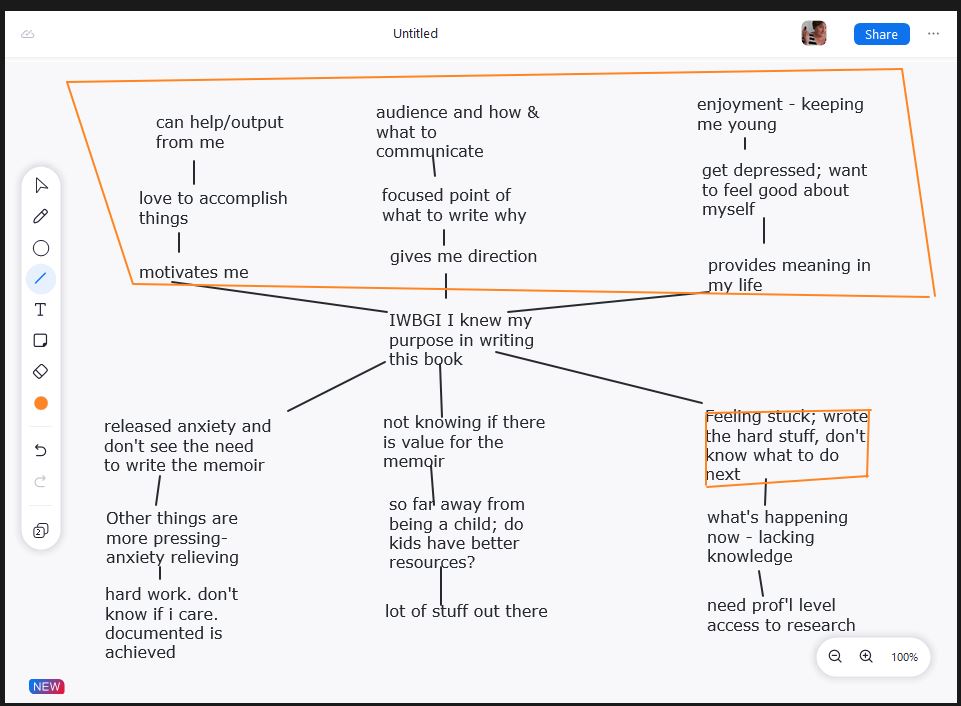-
People don’t really know how a creativity coach helps a writer. We’re so used to getting help with plot, character or publishing.
Useful, helpful. Ordinary help.
What creativity coaches do is different. We’re looking at many of the same challenges, but primarily we pull the camera all the way back, and focus, not on interior dialogue, or character position in scene, or even world building, but all the way out. We focus on you.
You write, we help you keep it flowing.
Here’s a story about a recent session with a client (shared with permission).
They had gotten to a point where their memoir was stalled. They’d written all the difficult, harrowing scenes. Hours had turned into weeks of emotional writing, and now they were stuck. They weren’t sure they wanted to finish the book.
Familiar territory, right? We all question what and why we’re doing things, right?
What did we do? On our Zoom call, we switched to “Whiteboard” and did a clarifying exercise together, called, “Why, What’s Stopping You?”
Why, What’s Stopping You?
- First: You state your goal, and write it in the center of a page.
- Note: You may need to write several goals to get to the right one, and pick the most important one for the purposes of this exercise.
- See the goal statement in the center below?
- “IWBGI I knew my purpose in writing this book.” (IWBGI is an abbreviation of the statement starter: It Would Be Great If)
Why?
- Above the goal, there are three columns – in which the client answered the question: Why? (Outlined in orange, below)
- Why do you want to define the purpose/see your reasons for continuing??
- The First “layer” of answers are the easiest
- Motivates them
- Gives them direction in their lives
- Provides meaning
Can you see the client is beginning to see the value in continuing with the writing?
- Next you go up each column and collect your answers:
- Why does it motivate? Why else? Why else?
- Why does it give their life direction? Why else?
- Why does it provide meaning? Why else?
What’s Stopping You?
- Below the stated goal, you begin again with the question What’s Stopping You?
- The Client and I discussed what was stopping them, and I wrote the answers.
- Just as before, we “abstracted” further answers by asking
- What else? What else? in each column

This exercise made it much clearer to them why it was worthwhile, and which problems needed new ideas or solutions.
This is the kind of thing we might do in a creativity coaching session. I’m familiar with what they’re writing, and what kinds of drama it might create in their lives, but I focus on them as the writer, and they focus on the writing. When problems arise, we discuss possibilities and ideas for what might be needed.
So, that is what a creativity coach does, as opposed to a writing coach. this same exercise could have been deployed to answer a plot question or a character conundrum. Our goal is to get clarity on what the writer thinks and wants.
Does that help? Are you interested? Join the FB group – Write Without the Fight – where we discuss creative process and impediments.